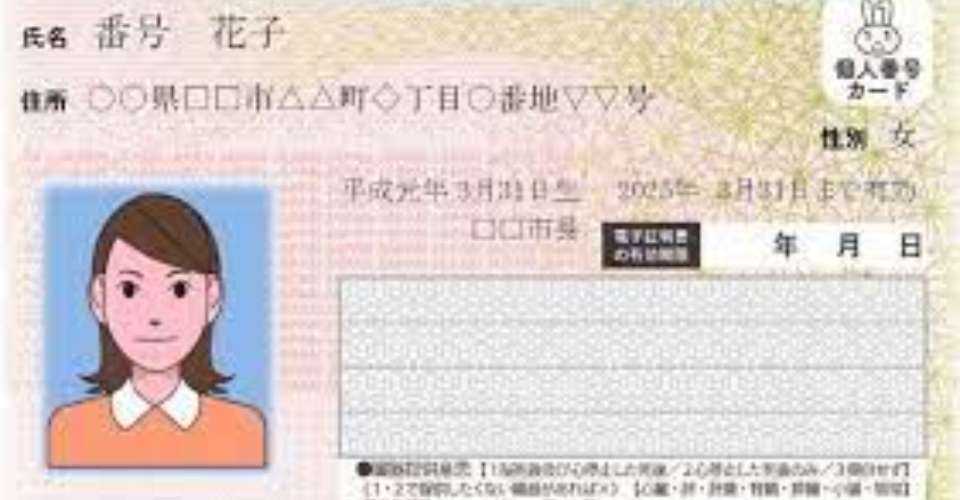
Since the inception of 'My Number' system almost 10 years ago, around 99 million digital ID cards have been issued to 80 percent of Japan's population, including about 2.9 million cards to foreigners. (Photo: digital.go.jp)
Japan’s My Number system, introduced with the best of intentions in 2016 to streamline administrative processes and enhance public service efficiency, has unfortunately fallen victim to its creators’ naiveté.
The electronic identification system, though designed with sophisticated anti-fraud measures, has proven to be easily forgeable, leading to widespread misuse and significant societal repercussions.
The simplicity of forging My Number cards is alarming. Just recently a 27-year-old Chinese woman, arrested by the Metropolitan Police Department for forging these cards, provided a startling account of how easy it is to produce fake cards.
Speaking from the Tokyo Detention Center, she described how she began this illegal activity in June last year to cover her living expenses. Introduced to the job by a friend and guided by a contact on the Chinese social media platform WeChat, she quickly learned the process. Within five minutes, she could produce a counterfeit card using a computer and printer provided by her handler.
The method involved printing personal information on both sides of a white card embedded with a fake IC chip. At her peak, she could produce up to 60 cards a day, which were then mailed to designated addresses across Japan. For her efforts, she earned electronic money valued between 12,000 and 16,000 yen daily (roughly US$100).
Investigations suggest her handler is based in China, and continues to orchestrate this illegal operation remotely.
Since the system's inception almost 10 years ago, around 99 million My Number cards have been issued to 80 percent of Japan's population, including about 2.9 million cards to foreigners.
The cards’ widespread use extends beyond government services to functions such as mobile phone contracts and opening bank accounts, often verified only visually. The staff quickly glance at it and move on as I have experimented tens of times.
Is this lax verification process enabling the proliferation of fake cards?
In March of last year, a Vietnamese man was caught attempting to use a counterfeit My Number card to secure a fraudulent smartphone contract in Tokyo. This case, among others, illustrates the ease with which these cards can be exploited.
Despite recommendations, only a few major banks have adopted devices capable of reading and verifying the information stored on the IC chips of the cards.
But the repercussions of this criminal activity extend far beyond financial losses. One of the most insidious impacts is on low-income Japanese citizens, who bear the brunt of the system’s inefficiencies.
As counterfeit cards flood the market, the demand for health care services by those who haven’t paid into it will burden the already overcrowded public hospitals. This results in longer queues and wait times at clinics and public service offices. For the low-income individuals who rely on these services by the low-cost public operator, the delays can be particularly burdensome, leading to lost wages and reduced access to essential services.
Moreover, the misuse of fake IDs to access health care services places additional strain on an already burdened system. Clinics and hospitals, especially those serving low-income populations, already experience increased patient loads and administrative challenges, further exacerbating the difficulties faced by these communities.
Historically, fake residence cards were the primary form of fraudulent identification used by foreigners in Japan. In 2020 alone, there were 790 arrests related to fake residence cards. In response, the Immigration Services Agency introduced an app to verify the authenticity of these cards, which has been widely adopted.
Despite the advanced printing technologies intended to prevent counterfeiting, the recent surge in fake My Number cards has prompted the Ministry of Internal Affairs and Communications, along with the Digital Agency, to issue new guidelines for private businesses on identifying counterfeit products.
Yet, the slow adoption of these technologies and the continued reliance on visual inspections leave significant gaps in the system.
As the widespread forgery of these electronic identification cards in Japan continues the vulnerabilities of a system crafted with noble intentions but lacking sufficient safeguards will emerge more strongly.
And like it always happens in cases of minor criminality, the low-income individuals and the elderly will disproportionately bear the repercussions, i.e., those who have the least means of understanding if, when, and how they have been defrauded in the first place, and those who have the least means to react with appropriate countermeasures.
*The views expressed in this article are those of the author and do not necessarily reflect the official editorial position of UCA News.


